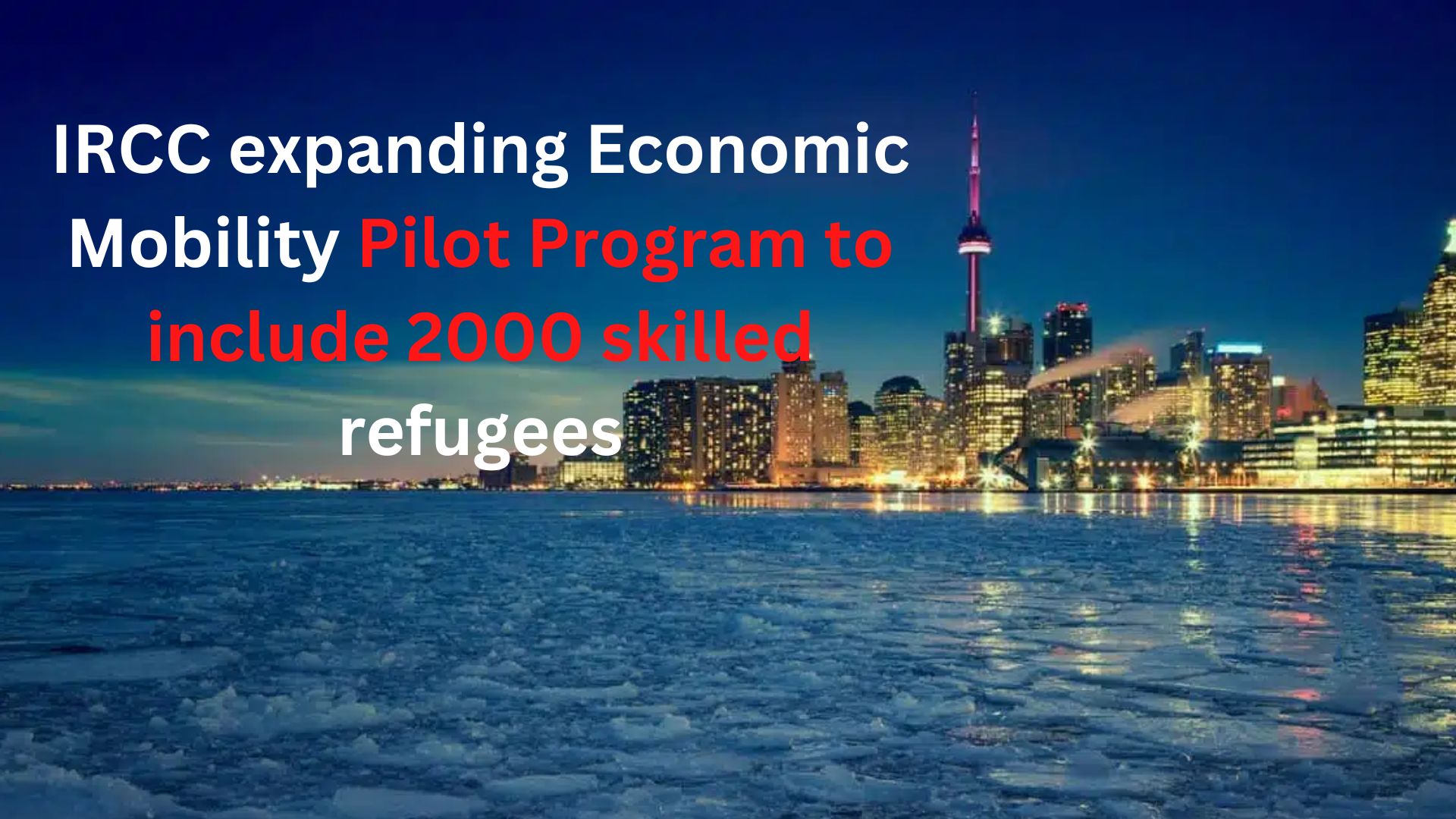The EMPP was created to assist skilled refugees in immigrating to Canada via existing economic programmes.
Immigration, Refugees and Citizenship Canada (IRCC) has announced that it will provide funding to several alliance partners through the Economic Mobility Pilot Program (EMPP).
Over the next few years, the programme will admit 2,000 skilled refugees to Canada to help with shortages in specific, high demand sectors. Immigration Minister Sean Fraser made the announcement today in Ottawa during a partner meeting.
The EMPP facilitates the hiring of skilled refugees by connecting them with employers who have urgent hiring needs.
Talent Beyond Boundaries, Talent Lift, and Jumpstart Refugee Talent are the recipients of funding. These organizations will soon be able to refer and support candidates directly. Each organization will receive training and quality assurance reviews.
Book your free consultation: 971-501160786, 971-4330786
“The Canadian economy is suffering from chronic talent shortages in a variety of sectors,” says Bassel Ramli, Co-Founder and Global Programs Director at Jumpstart Refugee Talent. “Meanwhile, millions of refugees around the world are seeking durable solutions to secure better lives for their families. Jumpstart, in collaboration with Immigration, Refugees, and Citizenship Canada, businesses of both nations across Canada in hiring and relocating people from displaced populations.
The government has set aside $6.2 million to support EMPP partner organisations.
The money will go to six different projects. The funds will be used to assist organisations in identifying qualified candidates overseas and assisting candidates and employers through the interview, hiring, and immigration processes.
The labour Shortage In Canada
The announcement comes at a time when Canada, like much of the rest of the world, is experiencing a skilled labour shortage and a high number of job openings. The scarcity is the result of an ageing population and a low birth rate. There are insufficient natural-born Canadians to fill open positions.
To combat the shortage, Canada released the Immigration Levels Plan 2023-2025, which set the highest permanent resident targets to date. The country aims to welcome over 500,000 new immigrants per year by the end of 2025 under this plan.
Of these, over 300,000 newcomers will be granted permanent residence through economic immigration programmes and, to further break it down, nearly 15,000 economic immigrants will come through an economic pilot programme.
Who Qualifies for the EMPP?
As of October 2022, Canada has already welcomed over 100 skilled refugees and their family members under the EMPP.
In the long run, a refugee who settles in Canada under the EMPP has less difficulty applying for permanent residency.
Waiving some fees, making it easier to demonstrate work experience, and allowing them to use loans to fund travel costs, settlement needs, start-up costs, and fees that cannot be waived are all EMPP facilitation measures. IRCC typically processes applications within 6 months.
Refugees seeking to immigrate under the EMPP must demonstrate that they are both refugees and eligible under an existing economic immigration pilot programme, such as the:
Atlantic Immigration Program
Program Provincial Nominee Program
Rural and Northern Immigration Pilot
Applicants under the Atlantic Immigration Program or the Rural and Northern Immigration Pilot are exempt from some of the standard eligibility requirements. For example, proving the number of hours asked for in the timeframe listed, although they must still prove they worked the same number of hours in general.
Refugees must also provide a letter of referral from one of the partner organisations.
What exactly is the EMPP?
The EMPP began as a research project in 2018 and has been divided into two phases. The first phase demonstrated that, with targeted assistance, skilled refugees can meet the eligibility requirements of existing economic immigration programmes. This phase contributed to the discovery of a large, untapped pool of potential skilled candidates capable of filling gaps in Canada’s workforce.
Currently, IRCC is aiming to settle 500 refugees and their families. The results of these settlements will assist IRCC in better understanding how to maximise the potential of skilled refugees and expand the EMPP. Read More info


